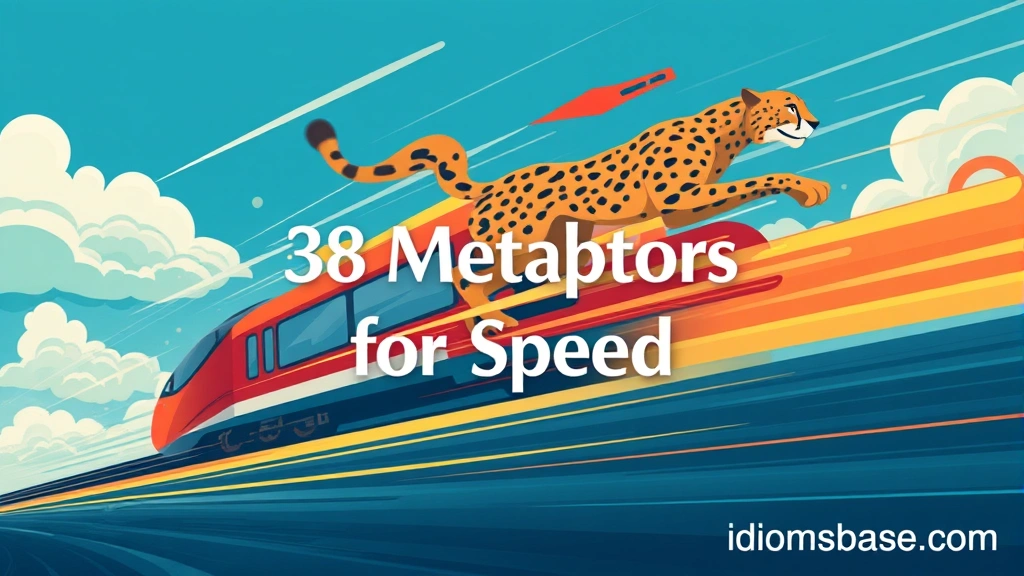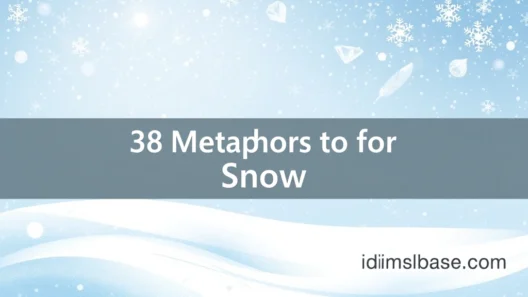Welcome, speed enthusiasts and wordsmiths! Have you ever tried to describe something moving really, really fast, and found yourself reaching for just the right words? It's a common challenge, isn't it? Our language is rich with imagery, and when it comes to speed, metaphors are our best friends. They help us paint a vivid picture, making the abstract concept of velocity tangible and exciting.
Metaphors for speed aren't just for poets; they're everywhere! From everyday conversations to thrilling action movies, these clever comparisons add zest and understanding to our descriptions. They allow us to connect the idea of quickness to something familiar, giving it an extra punch. So, buckle up, because we're about to embark on a thrilling linguistic journey through 38 fantastic metaphors for speed!
What's the Big Deal About Metaphors for Speed?
Why do we love using metaphors, especially for something as dynamic as speed? Well, they do so much more than just state a fact. They evoke emotion, create a strong visual in your mind, and make your language far more engaging. Instead of just saying "it was fast," you can say "it was a blur," and instantly, you've transported your listener right into the action! It's like adding turbo boosters to your vocabulary.
Think about it: how often do you hear someone say "lightning fast" or "quick as a whip"? These aren't literal statements, but we instantly understand the immense speed they convey. That's the magic of a good metaphor! It's about drawing a comparison between two seemingly unrelated things to highlight a shared quality – in this case, incredible swiftness.
The Power of Imagery
A well-chosen metaphor can transform a mundane description into a captivating scene. It’s like turning a black-and-white sketch into a vibrant, full-color painting. When you say something moved "like greased lightning," you're not just conveying speed; you're also hinting at smoothness, effortlessness, and an almost unstoppable force. It's truly amazing what a few well-placed words can do!
38 Metaphors for Speed
Here are 38 powerful and evocative metaphors you can use to describe blistering speed. Get ready to supercharge your descriptions!
- A blur: Something moving so fast it's hard to distinguish details.
- Like lightning: Extremely quick, often with a sudden, powerful burst.
- Like the wind: Fast and often smooth, flowing, or unobstructed.
- Quick as a whip: Very sudden and sharp in movement.
- A flash: Appearing and disappearing almost instantly.
- Like a rocket: Accelerating with immense power and speed.
- Like a bullet: Extremely fast and direct in motion.
- Like a cheetah: Graceful, powerful, and incredibly swift.
- Like a streak: Leaving a visible trail due to high velocity.
- A whirlwind: Rapid, chaotic, and often overwhelming in pace.
- Like greased lightning: Exceptionally fast and smooth.
- Like a bolt from the blue: Unexpectedly and incredibly fast.
- Like water through a sieve: Moving through something very quickly and without resistance.
- Like wildfire: Spreading rapidly and uncontrollably.
- Like a speeding train: Powerful, unstoppable, and very fast.
- Like a gazelle: Agile and incredibly quick, especially over long distances.
- Like a shooting star: Brief, brilliant, and incredibly fast across the sky.
- Like a bat out of hell: Extremely fast and often wild or panicked.
- Like an arrow: Direct, swift, and purposeful.
- Like a hummingbird's wings: Moving so fast they are almost invisible.
- Like a gazelle: Graceful and incredibly quick.
- Like a jet plane: Reaching immense speeds quickly.
- Like a race car: Designed for extreme velocity and agility.
- Like a hummingbird: Flitting quickly from place to place.
- Like a ripple on water: Spreading out quickly and smoothly.
- Like a river in flood: Powerful, unstoppable, and fast-moving.
- Like a drumbeat: Rapid and continuous.
- Like a gust of wind: Sudden, quick, and powerful.
- Like a runaway train: Unstoppable and accelerating rapidly.
- Like a blur of motion: So fast it loses definition.
- Like a hummingbird's heartbeat: Incredibly rapid.
- Like a blur of color: Moving so fast that individual colors merge.
- Like a speeding bullet train: Modern, sleek, and incredibly fast.
- Like a rocket taking off: Immense power and rapid ascent.
- Like a whip crack: Sudden, sharp, and very fast.
- Like a flash of light: Instantaneous and incredibly quick.
- Like an express train: Non-stop and moving at high speed.
- Like a wildfire in dry brush: Spreading with frightening speed.
How to Use These Metaphors Effectively

Choosing the right metaphor is an art! It's about finding the comparison that best fits the context and the emotion you want to convey.
Consider the Context
Is the speed graceful or frantic? Is it powerful or subtle? For example, "like a cheetah" implies powerful, agile speed, while "like a flash" suggests something instantaneous. Think about the specific scenario you're describing.
Evoke Emotion
Metaphors aren't just about facts; they're about feelings. "Like a bat out of hell" carries a sense of urgency or desperation, whereas "like the wind" often implies freedom or effortlessness. What feeling do you want your audience to experience?
Don't Overdo It!

While metaphors are wonderful, using too many can make your writing feel cluttered or forced. A few well-placed metaphors are far more effective than a barrage of them. Let them shine!
Frequently Asked Questions (FAQs)
Q1: What is a metaphor?
A metaphor is a figure of speech that directly compares two unlike things without using "like" or "as." It states that one thing is another, even though it's not literally true. For example, "The car was a rocket" is a metaphor for speed.
Q2: How do metaphors differ from similes?
Similes also compare two unlike things, but they use "like" or "as." For example, "The car was as fast as a rocket" is a simile. Metaphors are more direct and often create a stronger impact by stating identity.

Q3: Why are metaphors important in writing?
Metaphors add richness, depth, and vivid imagery to writing. They help readers visualize concepts, evoke emotions, and make abstract ideas more concrete. They also make writing more engaging and memorable.
Q4: Can I create my own metaphors for speed?
Absolutely! The best metaphors often come from your own observations and creativity. Think about things that are naturally fast in the world around you and try to draw connections. The more original, the better!
Q5: Are there different types of speed metaphors?
Yes, metaphors for speed can vary based on the type of speed they describe. Some describe sudden bursts (like lightning), others continuous velocity (like a train), and some emphasize grace (like a gazelle). The variety allows for precise and nuanced descriptions.
Key Takeaways
- Metaphors for speed are powerful linguistic tools that add vividness and emotion to your descriptions.
- They work by comparing speed to something familiar, making it more tangible.
- Choosing the right metaphor depends on the specific context and the emotion you wish to convey.
- Don't be afraid to experiment and even create your own unique metaphors!
- A well-placed metaphor can transform your writing from good to unforgettable.
So, the next time you need to describe something moving at an incredible pace, ditch the plain old "fast" and reach for a compelling metaphor! Your words will thank you, and your audience will be captivated. Which of these metaphors is your favorite? Or perhaps you have a go-to metaphor for speed that wasn't on our list? Share your thoughts and let's keep the conversation about the magic of language zooming along!






